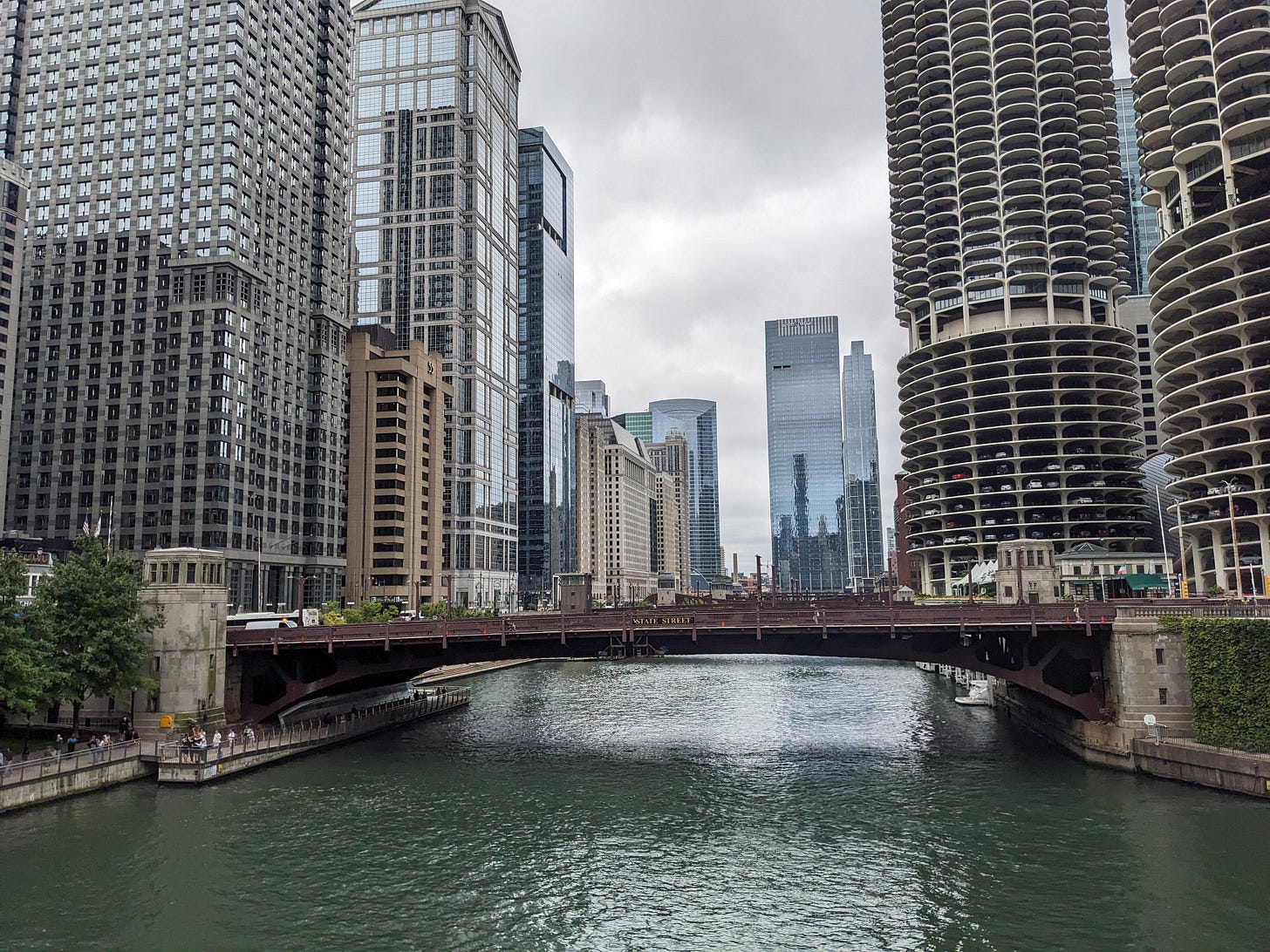Monthly Muse: 8/2024
Recapitulation, contemplation, provocation
Monthly Musings are published during the last week of every month. In each Monthly Muse, I recap content from the past month of Handful of Earth, offer some freewheeling reflections, and share a quote or passage that I’ve found especially thought-provoking.
Here’s the August 2024 Monthly Muse.
Recapitulation: Published this month on Handful of Earth
Contemplation
This month, I published an interview with Noel Ignatiev and James Murray on the topic of race and the American working class. Though I conducted the interview over six years ago, it struck me as exceedingly relevant in the present moment. This is not only because of the recent anti-immigration protests and riots in the British Isles, but also due to the racial discourse circulating in the United States in the wake of Kamala Harris’ selection as the Democratic Party presidential nominee.
Ignatiev and Murray emphasize the importance of the Civil War and Reconstruction in American history. As they note in the interview, these were truly revolutionary upheavals in the country’s past. By focusing on this history, Ignatiev and Murray also implicitly emphasize the centrality of black Americans (whom Yvette Carnell and others call, ADOS, or American Descendants of Slavery) in the radical history of the United States.
Several decades ago, this emphasis on ADOS in discussions of race in America would have been unquestioned common sense. However, downstream of the massive uptick in immigration from Asia, Africa, Latin America, and the Caribbean, the ADOS-white American contradiction in American politics has been (to use the academic jargon) “decentered.” What’s more, a significant proportion of these recent immigrants and their children hail from middle and upper middle-class backgrounds. Consequently, they often posses much more cultural capital than ADOS (or, for that matter, most white Americans) to influence domestic discourse on race.
From Barack Obama to Kamala Harris, the Democratic Party has a knack for handpicking non-ADOS black leaders. When Donald Trump stated that Harris only “became a black person recently,” he outraged the liberal press, but I suspect that at least some ADOS voters agree with him more than these journalists would like to believe. Born to an Indian mother, Shyamala Gopalan, and a Jamaican father, Donald Harris, Kamala was raised by Gopalan, whom she called “the most important person” in her life. Gopalan was not only a scientist at major universities and research centers, but also a member of the Tamil Brahmin community, one of the most elite caste groups in both India and the South Asian diaspora (Biotech billionaire Vivek Ramaswamy is an example of a “TamBrahm” on the other side of the isle in American politics).
In their book, The Other One Percent: Indians in America, Sanjoy Chakravorty, Devesh Kapur, and Nirvikar Singh note that “High castes (like Brahmins) and dominant castes (like Patels in Gujarat and Kapu and Kamma in Andhra Pradesh) constitute over 90 percent of Indians in America, distilled from a base of around one-fourth of the Hindu population in India.” Tamil Brahmins in particular are almost exclusively employed in high-status professional class positions with an especially high representation in Silicon Valley. No wonder Harris now seeks to downplay her Indian heritage—this isn’t exactly a background that resonates with working class ADOS and white voters in pivotal swing states.
In his recent article, “Democrats Are Super Happy, Working-Class Voters Are Not,”
writes that “most of what Democrats are doing and saying today amounts to, as befits their status as a Brahmin left party, a kind of Brahmin populism.” Perhaps Kamala was selected to quite literally put the “Brahmin” in Brahmin populism. Mirroring an American corporate sector that has become increasingly reliant on immigrants to fill the ranks of its professional-managerial class, the Brahmin left prefers to pick leaders untarnished by the central racial contradiction in the United States.Provocation
“Fondly do we hope, fervently do we pray, that this mighty scourge of war may speedily pass away. Yet, if God wills that it continue until all the wealth piled by the bondsman’s two hundred and fifty years of unrequited toil shall be sunk, and until every drop of blood drawn with the lash shall be paid by another drawn with the sword, as was said three thousand years ago, so still it must be said ‘the judgments of the Lord are true and righteous altogether.’”
—Abraham Lincoln, Second Inaugural Address (referenced in “Whiteness and the Working Class”)



Well-done, Vincent. The term "African American" can obscure as much as it can reveal. Back in the days when i worked at UC Berkeley, i noticed a distinction among students between those descended from families with long histories in the US itself and those from the Caribbean and Africa (primarily Nigeria and east Africa). Racial determinism once again falls on its face.
Nicely done, Vincent. Yes, when American was largely black/white (already ignoring lots) one might think of Civil Rights etc., as the long playing out of the problem of slavery. But Blacks are no longer the largest minority; different peoples have very different histories. And claiming that Harris, or for that matter Obama, is "Black" requires us to argue that the color of their skin is determinative . . . not a square I want to stand on, though perhaps it gets the nation over certain hurdles.